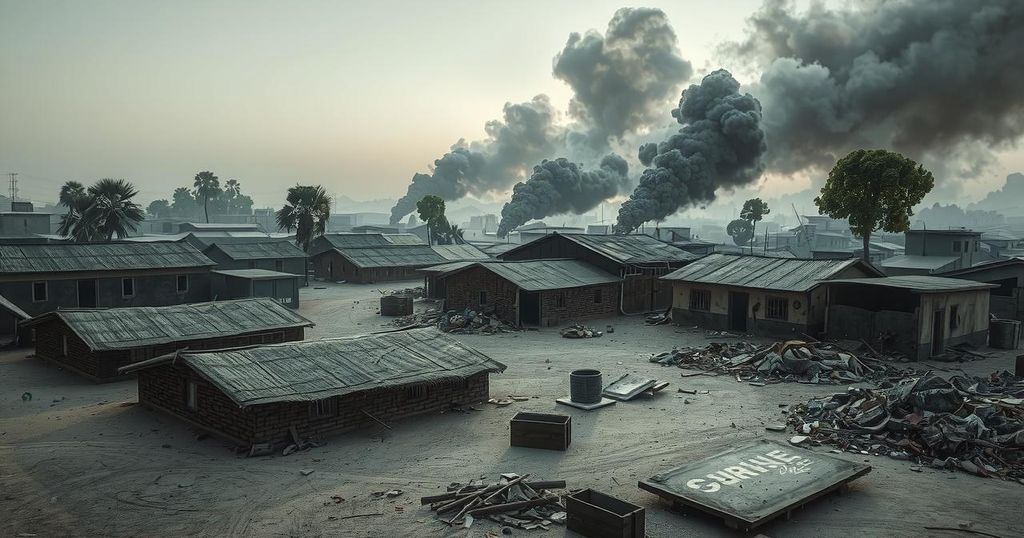An airstrike by South Sudan’s airforce killed at least 19 in Nasir, shortly after a government withdrawal and clashes with the White Army militia. The incident raises concerns of renewed conflict linked to past ethnic struggles. Local leaders suggest potential retaliation motives behind the strike as humanitarian organizations report casualties. The presence of Ugandan forces complicates the situation further.
On March 17, 2025, residents reported that an airstrike conducted by South Sudan’s airforce resulted in the deaths of at least 19 individuals in the eastern town of Nasir. This occurred shortly after government forces had withdrawn from the area following intense confrontations with the White Army militia, raising concerns of a resurgence of conflict reminiscent of the civil war that spanned from 2013 to 2018, which claimed numerous lives.
The clashes involved national forces and the militia, predominantly comprising armed youth from the ethnic Nuer community, which have historically been aligned with Riek Machar, South Sudan’s First Vice President. The government accuses Machar’s faction of collaborating with this militia, a claim that Machar’s party refutes. Recently, a UN helicopter was attacked while attempting to evacuate soldiers, resulting in the deaths of approximately 27 personnel, including a South Sudanese general.
Information Minister Michael Makuei confirmed that the airforce targeted Nasir on the morning of the strike, though local leader Kang Wan stated that the bombing occurred late the previous night. Of the deceased, 15 succumbed instantly, while others later succumbed to their injuries. Residents described a severe scene, with bodies burned and devastation evident. Notably, the organization Medecins Sans Frontieres reported receiving three injured individuals, with two pronounced dead upon arrival due to severe burns.
James Gatluak Lew, Nasir County Commissioner and an ally of Machar, suggested that the attack might have been retaliation for the recent helicopter assault. In a separate context, Uganda’s deployment of special forces to Juba sparked speculation about military involvement, although the South Sudanese government initially denied Ugandan troop presence. Makuei later clarified that some Ugandan units were indeed present to support the South Sudanese armed forces as needed.
The airstrike in Nasir has exacerbated tensions in South Sudan, potentially reviving conflicts linked to ethnic divisions and past civil wars. The ongoing military actions reflect deeper political rifts and the precarious security situation in the region. The response from international medical organizations highlights the humanitarian implications, as casualties result from sustained violence and retaliation. The involvement of foreign troops adds complexity to the local dynamics, indicating a need for careful monitoring and resolution efforts.
Original Source: bdnews24.com




